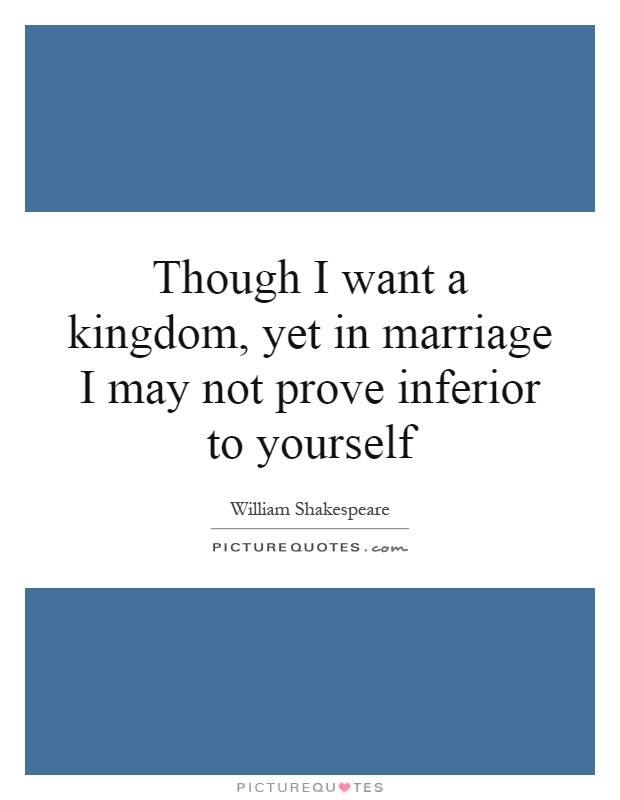Though I want a kingdom, yet in marriage I may not prove inferior to yourself

Though I want a kingdom, yet in marriage I may not prove inferior to yourself
In the world of William Shakespeare's plays, the theme of marriage is a common thread that runs through many of his works. In his plays, marriage is often portrayed as a complex and sometimes tumultuous institution, fraught with power struggles, jealousy, and betrayal. However, in some instances, marriage is also depicted as a source of strength and unity, where two individuals come together to support and uplift each other.One of the most famous quotes about marriage in Shakespeare's works comes from the play "Henry VI, Part 3." In Act 5, Scene 7, Queen Margaret declares, "Though I want a kingdom, yet in marriage I may not prove inferior to yourself." This line is spoken by Queen Margaret to her husband, King Henry VI, as she asserts her own worth and power within their marriage.
Queen Margaret's declaration is a powerful statement of agency and self-worth. In a time when women were often seen as inferior to men and were expected to be subservient to their husbands, Queen Margaret's words challenge the traditional power dynamics of marriage. By asserting that she will not be inferior to her husband, Queen Margaret is claiming her own autonomy and independence within their relationship.
This line also speaks to the larger themes of power and ambition that run throughout "Henry VI, Part 3." Queen Margaret is a fierce and ambitious character who is not content to simply be a passive observer in her own life. She is willing to fight for what she believes in and to assert her own power and authority, even in the face of adversity.
Overall, Queen Margaret's declaration in "Henry VI, Part 3" is a powerful reminder of the importance of equality and mutual respect in marriage. It serves as a testament to the strength and resilience of women in Shakespeare's plays, and a reminder that love and partnership should be based on mutual respect and support.












 Friendship Quotes
Friendship Quotes Love Quotes
Love Quotes Life Quotes
Life Quotes Funny Quotes
Funny Quotes Motivational Quotes
Motivational Quotes Inspirational Quotes
Inspirational Quotes